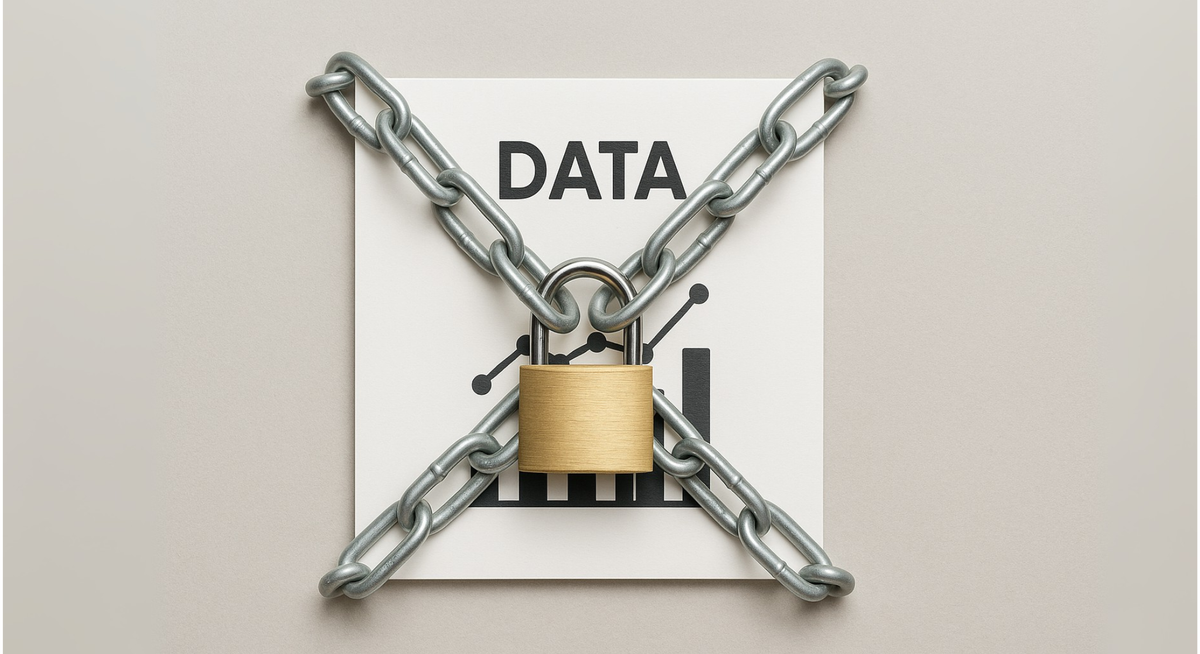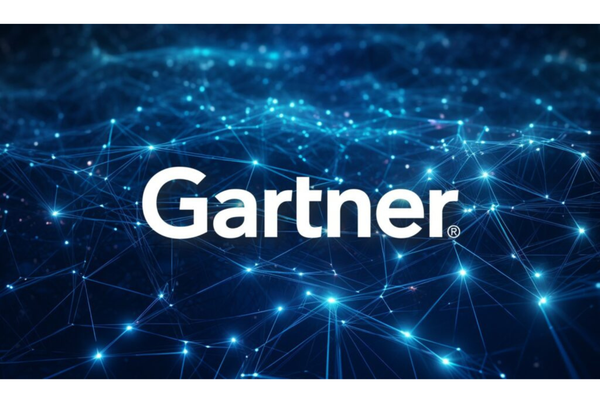Your Business Data on AI
A marketer's guide to safely using AI for your confidential customer, campaign and business data.

You're a champion for AI and you're encouraging your team to experiment. But as you watch them upload customer data, campaign spreadsheets, and confidential brand guidelines, a question might pop into your head:
How safe is our business data on AI?
The answer isn't a simple yes or no. It's a nuanced issue that hinges on a single, powerful distinction: the difference between consumer-grade, high-risk tools and secure, enterprise-ready platforms.
A recent analysis of AI usage across 7 million workers found a startling trend: over 75% of American businesses use AI, but fewer than 30% have a policy for it (source). This gap is a wide-open door for risk. Alarmingly, 71% of AI tools used in the workplace are classified as "high or critical risk" for data exposure (source).
The risk isn't malicious employees. Well-meaning teams, seeking to boost productivity, are often unaware that by uploading confidential spreadsheets or client data, they can inadvertently turn the AI system into an unwitting accomplice that exposes the organization's most sensitive information. In fact, one study found that 83% of all enterprise data used with AI platforms is flowing to these risky, unsecured applications. (source).
So, how do you protect your most valuable marketing assets? The answer lies in understanding the distinct data-handling philosophies of the major players.
How The Major Platforms Compare
When choosing an AI tool for your business, you must move beyond the free, consumer-facing versions and look for the enterprise-grade solutions. The core difference is their policy on using your data for model training.
- OpenAI (ChatGPT): OpenAI's policy for its business and enterprise customers is clear: your data is not used to train or improve their models. This includes inputs and outputs from ChatGPT Enterprise, ChatGPT Business, and their API platform. Data is encrypted both at rest and in transit.
- Microsoft (Copilot & Azure AI): As a key partner of OpenAI, Microsoft’s approach for its Azure AI services, which includes Copilot, mirrors this philosophy. Microsoft states that it does not share customer data with advertiser-supported services and does not mine it for purposes like advertising.
- Google (Gemini): Google’s policy for its enterprise services is equally stringent. For products like Document AI, Google explicitly states, "we never use customer data to train our Document AI models." Given Google's role in analytics and advertising, this commitment is crucial for marketers who need to securely analyze large datasets or integrate AI into their ad campaigns.
- Anthropic (Claude): Anthropic’s consumer-facing service provides a critical point of contrast. Their policy explicitly states that if you allow them to use your chats to improve Claude, they will retain your data for up to five years. While they have made changes to their policy, this is a significant distinction from the "zero-training" policies of enterprise-grade platforms. While the consumer-facing tool might be great for personal brainstorming, it's not the place to upload confidential campaign briefs or client information unless you are on their enterprise-grade plan.
Your Marketing AI Security Checklist
This checklist distills best practices for marketing leaders who want to use AI tools while safeguarding sensitive customer or business data.
- Create a Policy: Immediately establish a clear governance policy that defines approved tools, classifies data levels (e.g., public, confidential), and outlines employee responsibilities.
- Define what counts as sensitive: Classify data types (e.g., personally identifiable information, payment and health data, unreleased financials, trade secrets). Only collect and share the minimal data necessary for the task.
- Choose enterprise-grade tools: Use enterprise or commercial plans that explicitly state they do not train on customer data (e.g., ChatGPT Enterprise, Microsoft Copilot, Anthropic Enterprise). Avoid consumer or free modes for sensitive data.
- Opt out of training: Where possible, disable model training on your data and configure the shortest feasible retention period.
- Review outputs and maintain human oversight: Generative models may produce inaccurate or sensitive content. Models can incorrectly infer PII, so human review is essential before using outputs in customer communications or decision-making.
- Train your team: A governance policy is only effective if it's enforced. Continuous, ongoing training is essential to educate employees on the risks and your company's specific acceptable use policies.





